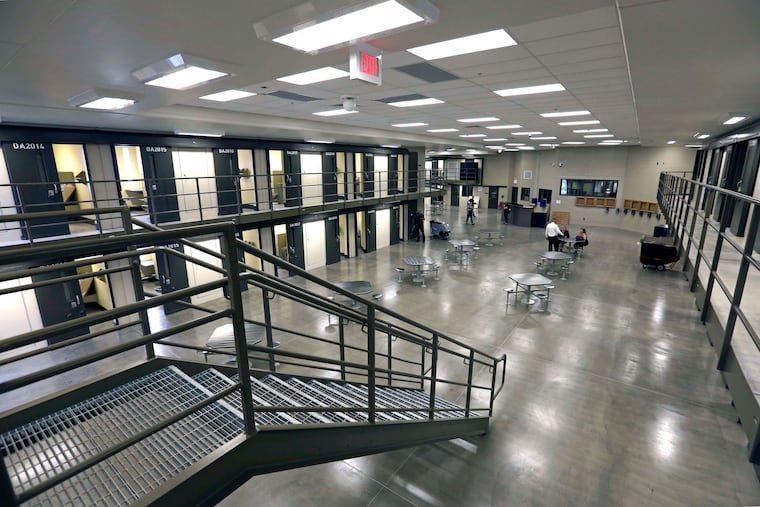‘Juvenile lifers’ should be considered for release during pandemic | Opinion
Many adults who were sentenced to life-without-parole as juveniles could be safely considered for early release during the COVID-19 pandemic.

In 1996, 17-year-old Jorge Cintron of North Philadelphia confessed to multiple murders after learning someone else had been arrested for his crimes.
Like most youth who commit serious crimes, Cintron’s young life was marked by adversity. His father was a drug kingpin. Police raids at his house were such a common occurrence that Cintron’s earliest memories are of his father always wearing a bulletproof vest.
He began drinking at the age of 8 and tried illicit drugs for the first time at 11. At age 13, his father was incarcerated, and he was pushed into the “family business.”
» READ MORE: Should there be large-scale release of prisoners during the coronavirus pandemic? | Pro/Con
Under Pennsylvania law, Cintron was sentenced to mandatory life in prison without the possibility of parole. However, following the 2012 Supreme Court ruling in Montgomery v. Louisiana that stated mandatory sentences of life-without-parole juveniles are unconstitutional, Cintron was resentenced to 30-years-to-life.
Cintron’s story is similar to that of many individuals who were sentenced to life-without-parole as juveniles and are now adults. Collectively known as “juvenile lifers,” many of these individuals could be safely considered for early release during the COVID-19 pandemic.
In light of the pandemic, some parole boards and prosecutors are releasing elderly inmates and those convicted of low-level offenses to help mitigate the risks posed by the pandemic. The rationale has been that these inmates pose low risk to community safety. Research shows, however, that individuals released after having served very long sentences, including life sentences, have the lowest recidivism rates of any category of previously incarcerated individuals. Juvenile lifers are no exception: We recently conducted a study of 174 juvenile lifers who had been resentenced and released in Philadelphia. Over an average follow-up period of 21 months, only two (1.1%) were reconvicted, and both were for minor offenses.
Of course, just as rehabilitation is not the only justification for incarceration, low recidivism risk may not be, in and of itself, a justification to shorten the length of a sentence. However, as we are in the throes of a national debate over releasing inmates to reduce the risk of COVID transmission, it is necessary for policymakers to be informed by the best science, which tells us individuals who committed crimes as juveniles and are now in their 40s and 50s pose a negligible risk to society.
» READ MORE: Generations of Philly families are incarcerated together
Cintron has been incarcerated for nearly 23 years. In that time, he has earned a barber’s license and his GED. He graduated from a four-year religious education program (Education for Ministry) and is a certified peer specialist for the Department of Corrections. He can be considered a model prisoner; his last documented prison misconduct was in 1999. And he already has a job lined up for him at Danny’s Back to Basic Barbering.
Like many other juvenile lifers who have been resentenced following Montgomery, Cintron has plans to make difference with the rest of his life. He has received recognition for his collaboration on a youth crime prevention booklet with State Rep. Leslie Acosta, and he wants to volunteer with at-risk youth to keep them from falling into criminal behavior
His parole date is Sept. 5, 2026, but as COVID continues to spread in his prison, Cintron, who has preexisting conditions that make him vulnerable to contracting the virus, is fearful that he will not see that date.
» HELP US REPORT: Are you a health care worker, medical provider, government worker, patient, frontline worker or other expert? We want to hear from you.
The Supreme Court has recognized that juveniles should not be sentenced to die in prison, but the virus has a different opinion. It is up to governors and parole boards to ensure that the virus does not have the final say.
Tarika Daftary-Kapur is an associate professor of justice studies at Montclair State University. Tina Zottoli is an NYS-licensed clinical psychologist and an assistant professor of psychology at Montclair State.